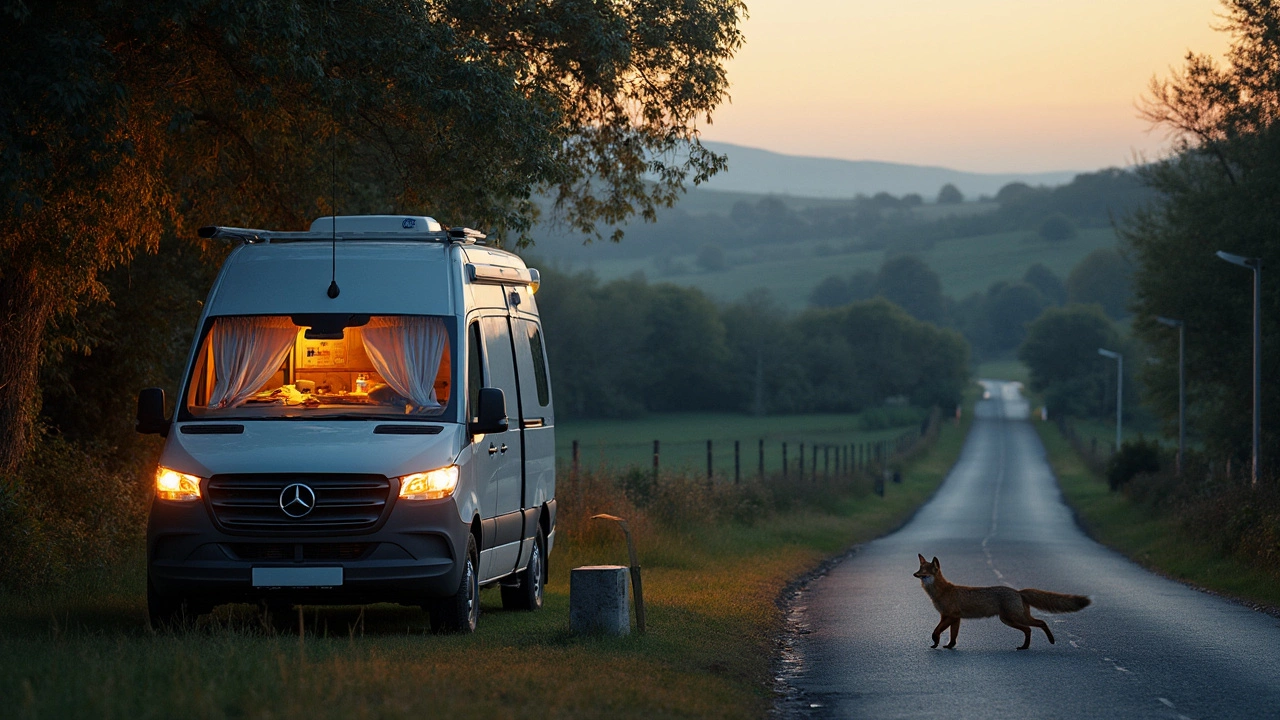Vanlife Laws in the UK – Your Quick Legal Guide
If you’re cruising around Britain in a motorhome or campervan, the last thing you want is a ticket or a rude police officer. The good news is most rules are simple and you can stay on the right side of the law with a few clear steps.
Where You Can Stay Overnight
First, understand the difference between official campsites and wild‑camping spots. Official sites have hookups, bins and clear rules – they’re the safest bet. Most of them let you park for a night or two without extra paperwork.
Wild camping is trickier. In England and Wales, it’s technically illegal on private land unless you have the owner’s permission. Scotland is more relaxed thanks to the Scottish Outdoor Access Code, which lets you camp responsibly on most land as long as you follow the “leave no trace” rules.
For England and Wales, look for public land that explicitly allows overnight stays – such as some council‑run car parks, AONB visitor centres, or railway station platforms that state “overnight parking permitted.” Always check the signs first. If you’re unsure, a quick phone call to the local council can save you a fine.
When you do camp in a remote spot, keep your setup low‑key: a small tent or a motorhome parked off the road, no bright lights, and no loud music. Pack out everything you bring in, especially food scraps, to avoid upsetting landowners or wildlife.
Driving and Road Rules for Motorhomes
Driving a motorhome isn’t the same as driving a car. The biggest difference is the weight class. Vehicles over 3,500 kg need a Category B+E licence to tow a trailer, but most motorhomes fall below that limit, so a normal car licence works.
Speed limits are the same as for cars, but remember that a fully loaded motorhome takes longer to stop. Keep a safe distance, especially on wet or winding roads. In the UK, you’re required to carry a warning triangle, reflective jackets, and a first‑aid kit – the rule applies to all vehicles, but motorhome owners often forget the extra safety gear.
Parking restrictions are strict in towns and cities. Look for “resident only” or “loading zone” signs; ignoring them can lead to a £130 fine. Many towns have designated motorhome parking bays that are free for a few hours – use those whenever possible.
Emptying waste tanks must be done at approved dump points. Dumping black water (toilet waste) on the road or in public places is a criminal offence and can attract a £1,000 fine. Most service stations, caravan parks and some council facilities provide free or low‑cost waste disposal.
Finally, always display your vehicle registration and insurance documents when asked. Police can ask for proof of insurance if you’re pulled over, and failing to produce it can result in penalty points.
By following these basics – respecting where you camp, obeying parking signs, and handling waste responsibly – you’ll avoid most legal headaches and enjoy the freedom that vanlife promises.
Keep a small notebook of local rules, dump‑point locations, and any permission you’ve received. It’s cheap, it’s handy, and it’ll keep you out of trouble on the road.
Is It Illegal to Sleep in the Back of a Van in the UK? Straight Answers for Vanlifers
Thinking about catching some sleep in the back of your van in the UK? This article clears up whether it's allowed, where and when you can do it, and how to stay on the right side of the law. Get concrete advice on choosing legal spots, understanding grey areas, and avoiding common slip-ups. Learn insider tips that only regular van dwellers know. Make your UK vanlife safe and hassle-free.
